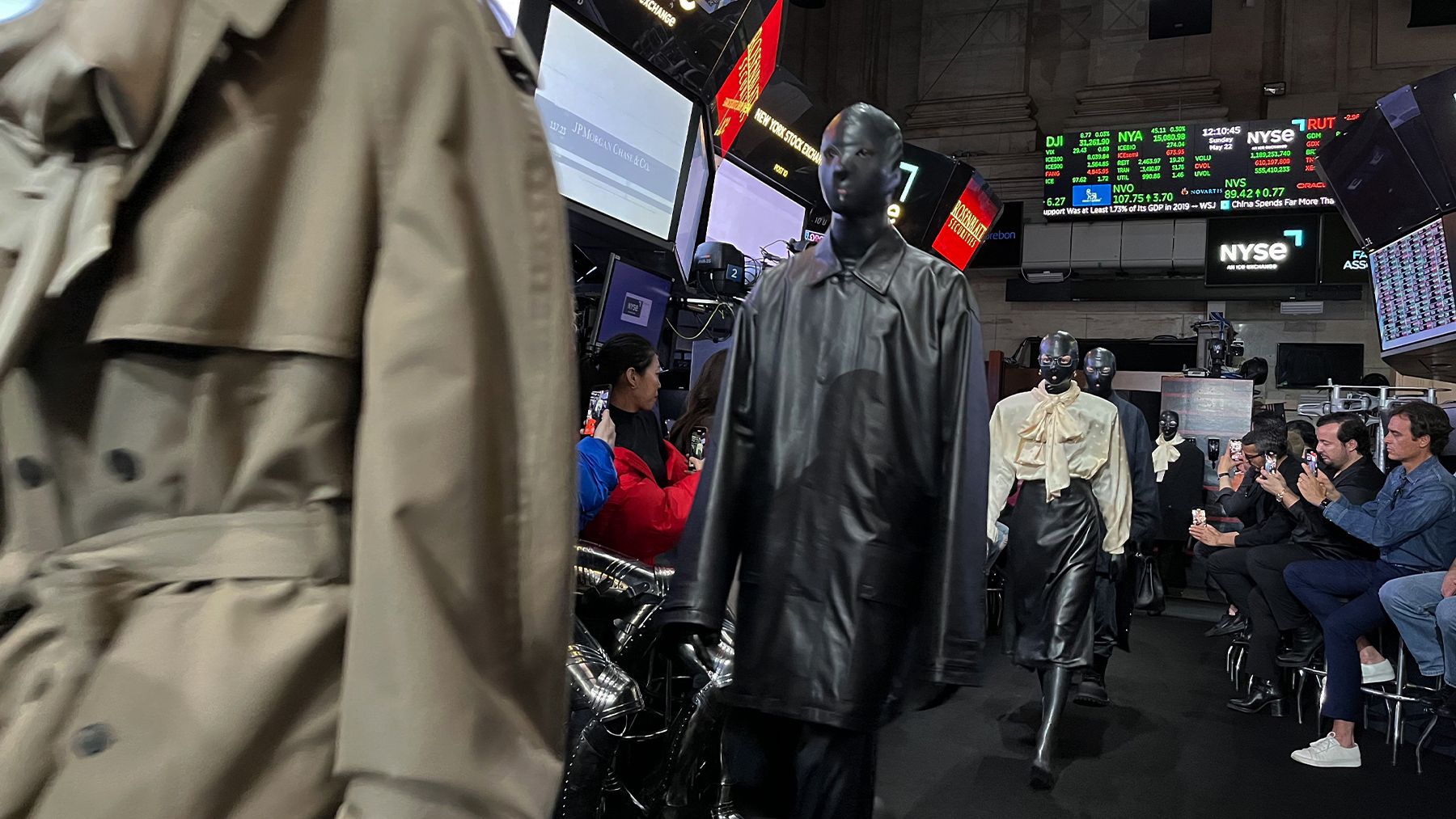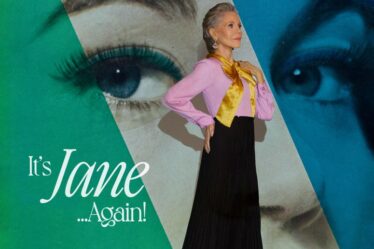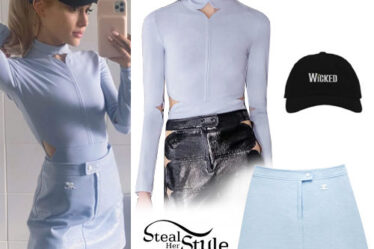
Greed may not be good, but it’s sometimes hard to argue with the maxim that money makes the world go ‘round. There’s no single place in America more linked to making money than 11 Wall Street, now the largely symbolic home of the New York Stock Exchange. These days, most transactions happen in the digital world, not on the trading floor, but it’s still a flex on the part of Balenciaga designer Demna to show his latest collection there on a Sunday morning, when the city’s financial district is filled with tourists instead of stock brokers.
Demna, who dropped his last name last year, said that for the brand’s first show outside Paris, they initially considered New York’s Central Park. But what could be more fitting to present a collection aimed squarely at filling out a customer’s closet — either with perfectly executed wardrobe essentials and/or logo-ed streetwear — than a temple of capitalism?
Balenciaga is certainly in New York to make money. The US market has been key to the luxury sector’s post-pandemic rebound, as evidenced by the string of high-profile shows staged here in recent months, starting with Alexander McQueen in New York in March and followed up by Dior and Louis Vuitton in California in May.
It was also the market that “supported my vision at Balenciaga from day 1,” Demna said backstage. In partnership with CEO Cedric Charbit, the designer has pushed Balenciaga past $2 billion a year in sales, according to analyst estimates.
As creative and daring as Demna can be, he is also a proudly commercial designer whose talent lies in making something thought-provoking out of the mundane.
“The biggest and most important challenge for any kind of creative is to make product that is desirable, to create desire. That’s what fashion should do,” he said. “The commercial success of a product is linked to that desirability. That’s the biggest and most difficult thing.”
For this outing, he proposed two wardrobe solutions. To start, a new line, Garde-Robe, made up of beautifully draped blouses, sharply tailored trench coats and pleated dresses in shades of black, navy and cream, worn with puffy Minnie Mouse heels and overgrown duck boots, meant to fill in holes in his couture customer’s closet. (A stylised version of Melanie Griffith’s wardrobe in “Working Girl.”) He said the collection was a missing link in Balenciaga’s product offering.
A straightforward collaboration with Adidas — “I always wanted to use the three stripes and the logo” — offered the more casual customer a new reason to shop. But there were twists. The heads of the models, weaving around the floor of the stock exchange, illuminated by screens playing CNBC and stock tickers, were covered with black latex, little holes cut out for earrings and exaggerated false eyelashes, not to mention seeing and breathing.
When asked why he likes to cover up his subjects, the designer said that it made styling easier — “Otherwise I would find it a little too classic” — but also mused on “fashion kind of erasing the identity of people today.”
“Everybody jumps on the bus or trend wagon, and starts looking the same,” he said. “Also, for me, clothing is an object of fetish. This is why I do it. There was a link between fetish and also money being the biggest fetish in the world. That’s why we’re here today.”
The irony was not lost on the designer or the audience. A recession is looming. This past week, the S&P 500 index logged its longest losing streak since 2001. But the turmoil isn’t only economic. Headlines like “State Abortion Restrictions Loom” ran across screens, which became more fragmented and staticky as the show went on, ending in an absolute blur as the last looks hit the floor. Demna said he’d rather not track the performance of the stock market: “I’ve been too busy fitting jackets.”
“If we watch the news, we don’t have confidence in anything any more,” he said. “There will be moments where it will be hard, but I think we will get over it.”
Learn more:
Decoding Demna’s Vision for Balenciaga
The designer talks to Tim Blanks about the apocalyptic power of his latest Balenciaga show and why reality beats the metaverse.
The Business Vision Behind Balenciaga’s ‘New Era’
From a couture revival to winning the Met Gala, the Kering-owned brand is white-hot. Ahead of its buzzed-about Paris Fashion Week show Saturday, CEO Cedric Charbit speaks to BoF about the strategy behind ‘new era’ Balenciaga and his plan for pushing sales to the next level.
Can Balenciaga Modernise Couture?
Reviving Balenciaga’s haute couture operation has been a transformative experience for Demna Gvasalia, resulting in a democratic, gender-fluid collection that includes jeans and t-shirts. The designer sits down with Tim Blanks for an in-depth interview on the label’s ‘50th couture collection.’



